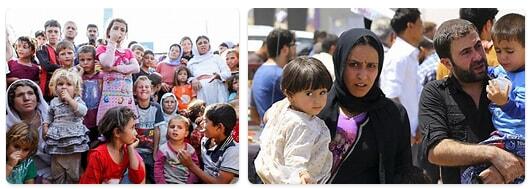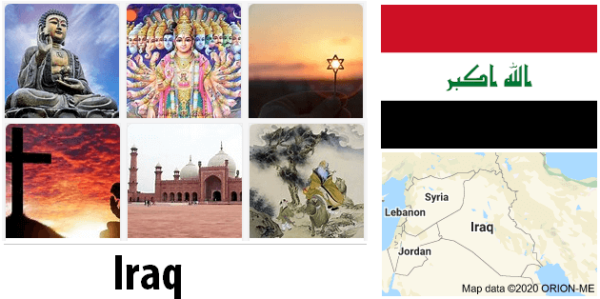1990-91 The crisis and war of the Persian Gulf
The conflict with neighboring Kuwait is now tightening. Kuwait refused to cap its oil production, which lowered oil prices and hit Iraq financially. At the same time, the country extracted more oil in the border with Iraq than the two countries had agreed. Saddam Hussein interpreted US neutrality in the conflict in a way that the superpower would not intervene if Iraq invaded its neighboring country. It happened – on August 2, 1990 – and Iraq took thousands of foreigners hostage.
Four days later, the UN adopted an economic and military blockade of Iraq to the country unconditionally withdrew from the occupied territory. At the same time, the World Organization declined to accept a withdrawal in return for conducting an international conference to discuss the problems in the Middle East. As Iraq began to release hostages in an attempt to get negotiations under way, the United States closed all doors to dialogue and demanded unconditional surrender.
Over the following months, the United States gathered huge troop forces south of Kuwait, Saudi Arabia, and threw together an alliance of 32 countries – including almost all of the Arab countries fearing Iraq’s military strength. Led by the United States, the alliance launched its attack on Iraq on January 17, 1991. The so-called Gulf War was in progress. By the time the land offensive was launched in February, Saddam Hussein had already declared that Iraq would withdraw from Kuwait without conditions. The Iraqi army was in no way able to withstand the offensive, merely trying to retreat somewhat organized, but suffered enormous losses. The war was over at the beginning of March. Iraq suffered a total defeat. Before withdrawing from Kuwait, however, it took a terrible revenge by setting fire to all the country’s oil sources. The war cost 150-200,000 Iraqis their lives. Most civilians. (See also the Gulf War section under Kuwait, as well as the Gulf War).

Since the war, there have been a number of guesses as to why the alliance did not continue its advance against Baghdad to overthrow Saddam. One assessment was that it would cost far more Allied losses to fight Iraqis in Iraq, where they were at home. Another that international opinion had been startled by the TV images of thousands of Iraqi soldiers who had been burned to death during the Allied advance. In any case, the Allies halted the advance, focusing instead on the development of a deputy war. The Shiites in the south of the country and the Kurds in the north were encouraged to rise against Saddam, but internal disagreements made it impossible to reconcile any solid national alliance against Saddam. So the world could just look helpless, while Shiites and Kurds were slaughtered by the still mighty Iraqi military apparatus. Over a million Kurds were driven to Turkey and Iran, and thousands died of starvation and cold as winter set in. At the end of 91, the refugees in the border area were exposed to military attacks by both Iraqi and Turkish side.
The United States had dumbed down. Saddam Hussein had not been militarily overthrown at the time when it was possible and the internal rebellion had failed. Instead, the governing body should be reduced by continuing the international sanctions. Very strict requirements were set for when they could be repealed. According to the New York Times and Sunday Telegraph newspapers, the United States sought to further destabilize the regime by smuggling huge amounts of counterfeit dinars – the Iraqi currency – across the border from Jordan, Saudi Arabia, Turkey and Iran. Baghdad therefore decided to sentence the death penalty to persons who participated in these operations.
According to thesciencetutor, in late 1991, the Iraqi government authorized UN inspectors to inspect the Iraqi military installations. In 1992, evidence was found of the existence of a uranium reprocessing program. It was started with the support of Germany. UN inspectors destroyed 460 pieces. 122 mm rockets containing nerve gas sarin. Furthermore, the al-Athir nuclear plant was demolished. The same was true of the uranium enrichment plant in Ash-Sharqat and Tarmiyah as well as the chemical weapons factory in Muthana.
Pressure on Iraq continued through 1994. to force the country to recognize the new border against Kuwait, which, according to Saddam, deprived Iraq of a small bite of its territory. Only in November did the Iraqi head of state recognize the new border. The UN had already marked it in the desert.
The same year, the trade blockade was eased slightly. Through Turkey, Iraq was allowed to import certain foods and medicines. A few months later – in March 95 – the Turkish military entered Iraqi Kurdistan. That happened with US approval. The purpose was to attack the North Kurdish separatist movement PKK. Iraqi Kurdistan attacked Turkish military units.
